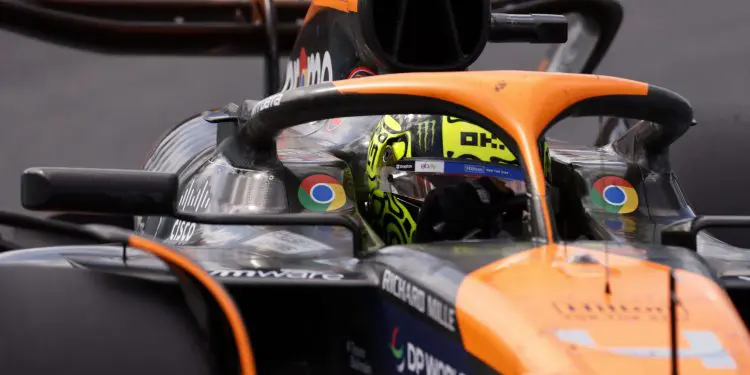McLaren’s dramatic rise in the 2024 Formula 1 season turned the Miami Grand Prix into a pivotal moment, where Lando Norris snatched his maiden F1 victory and signaled the end of Red Bull’s early-season dominance. Red Bull’s Technical Director Pierre Wache admitted the sudden shift in performance left the reigning champions reeling, as McLaren’s unexpected leap caught everyone, including Red Bull, by surprise.
The Miami shockwave
The 2024 season began with Max Verstappen and Red Bull in complete control, winning four of the first five races. Verstappen seemed poised to cruise to another championship, and Red Bull’s grip on both titles appeared unshakeable. But the Miami Grand Prix flipped the script.
In a race marked by a well-timed Safety Car, Lando Norris capitalized on McLaren’s newfound pace to claim his first-ever victory. While the result was initially attributed to strategy, the true story soon unfolded—McLaren’s MCL38 was no fluke. The Woking-based team had arrived.
Wache: “It was a surprise”
For Red Bull, Miami wasn’t just a bad day at the office; it was a wake-up call. Wache revealed that Red Bull hadn’t made any significant changes to the RB20 or its setup leading into the race. Instead, McLaren’s sudden step forward was the catalyst that upended Red Bull’s dominance.
“We didn’t change the car; we didn’t change the way we set up the car,” Wache explained. “It looked like the others did a big change instead of us.”
Red Bull had anticipated tighter competition as the season progressed, but the magnitude of McLaren’s leap still caught them off guard. Wache confessed, “In Miami, we should have won the race. However, we were not the quickest anymore. Clearly, something changed, especially with McLaren.”
McLaren’s winning formula
McLaren’s resurgence didn’t happen overnight. After a sluggish start to the season, the team introduced a comprehensive upgrade package to the MCL38 at Miami. The changes addressed key weaknesses that had plagued them during the early rounds, particularly in tire degradation and aerodynamic balance.
“They [McLaren] were able to have less tire degradation than everybody else, and their package seemed to work very well afterwards,” Wache observed. “I don’t know what they have done; you have to ask them, not me.”
The upgrades brought McLaren to life, transforming the MCL38 into a championship-contending car. Norris’ Miami triumph was only the beginning, as McLaren would go on to dominate the Constructors’ Championship, dethroning Red Bull and ending Ferrari’s hopes of a late-season resurgence.
The ripple effect
Wache’s reflections highlight how McLaren’s Miami performance changed the trajectory of the 2024 season. What was initially seen as a tactical victory became the first sign that Red Bull’s early-season dominance was over.
“In Miami, we were more or less there,” Wache admitted. “But during the race, we saw McLaren found the sweet spot in terms of their performance. It was a very big surprise.”
McLaren’s progress was not the result of a single massive development but rather the culmination of a cohesive package coming together. “The whole car came together,” Wache said. “That’s what made the difference.”
The road ahead
With the 2025 season on the horizon, Red Bull faces the challenge of reclaiming its crown from a resurgent McLaren. Norris’ breakout season and McLaren’s relentless development have set a new benchmark, forcing rivals to up their game.
For Red Bull, Miami serves as a reminder of how quickly the balance of power can shift in Formula 1. The once-unstoppable team now has to adapt, innovate, and fight harder than ever if they want to return to the top.







